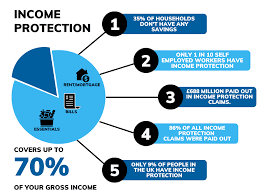Why Renters Insurance is Essential: A Comprehensive Overview
Renters insurance is a crucial yet often overlooked aspect of financial protection for those who lease their homes. Unlike homeowners insurance, which covers the structure and contents of a home, renters insurance is designed specifically for tenants, providing vital coverage for personal belongings and liability within a rental property.
1. Protection for Personal Belongings
One of the primary benefits of renters insurance is coverage for personal property. This means that if your belongings—such as electronics, furniture, or clothing—are damaged or stolen due to events like fire, theft, or vandalism, renters insurance can help cover the replacement or repair costs. For instance, if a fire damages your apartment and destroys your possessions, your renters insurance policy can provide financial assistance to replace items and get you back on track.
2. Liability Coverage
Renters insurance also includes liability coverage, which is essential for protecting yourself against legal and financial responsibility if someone is injured in your rental property. For example, if a guest trips and falls in your apartment liability coverage can help cover their medical expenses and any legal fees if they decide to sue. This protection can save you from substantial out-of-pocket costs and legal troubles.
3. Additional Living Expenses
In the event that your rental becomes uninhabitable due to a covered incident like a fire or severe water damage, renters insurance can cover additional living expenses. This includes costs for temporary accommodations, such as hotel stays or rental properties, as well as other related expenses. This benefit ensures that you aren’t financially strained while finding a new place to live.
4. Affordable and Accessible
Renters insurance is often surprisingly affordable, with policies typically costing only a few dollars a month. This low cost makes it a practical choice for most renters, providing a high level of protection without straining your budget. Policies can be easily tailored to fit your needs, whether you live in a small apartment or a larger rental property.
5. Common Misconceptions
Despite its benefits, many renters mistakenly believe that their landlord’s insurance will cover their personal belongings. However, a landlord’s policy usually only covers the building itself and may not extend to tenants’ possessions. Renters insurance fills this gap, ensuring that you have adequate protection.
In conclusion, renters insurance is a smart and affordable way to protect your personal property, cover liability, and handle unexpected living expenses. By investing in renters insurance, you safeguard your financial well-being and enjoy peace of mind knowing that you’re prepared for the unexpected. Whether you’re in a cozy apartment or a larger rental, renters insurance offers essential protection that can make all the difference in challenging situa
FOR MORE DETAIL: CLICK HERE







.jpeg)
.jpeg)
.jpeg)
.jpeg)



.jpeg)


.jpeg)
.jpeg)
.jpeg)
.jpeg)